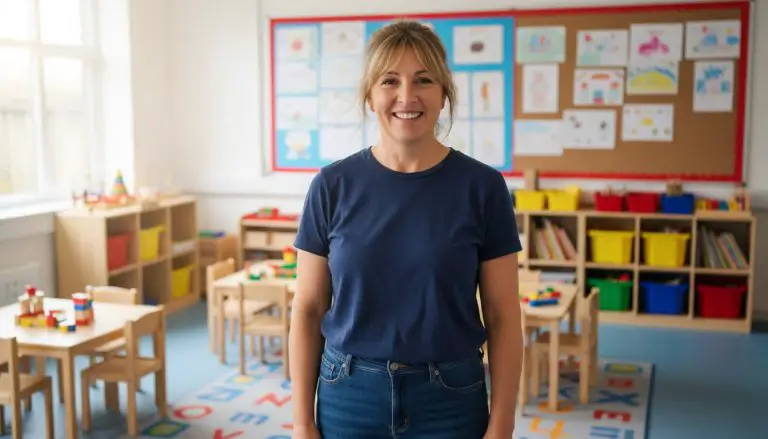
This guide will help you answer 6.3 Describe steps to take to maintain good oral health in babies and children.
Oral health plays a big role in the overall health and well-being of babies and children. Developing positive habits early can prevent issues such as tooth decay, gum disease, and other oral health problems. Babies and children rely on adults to help them maintain a clean, healthy mouth. Here’s a guide on how to support good oral health for children during their early years.
Oral Care for Babies
Oral health begins even before a baby has teeth. Babies are born with gums that need care and attention to ensure that their first teeth (known as milk teeth) grow strong and healthy. Poor oral hygiene as a baby can lead to painful problems later in life.
Key steps for oral care in babies:
- Cleaning gums: Before teeth appear, clean a baby’s gums using a soft, damp cloth or gauze. Gently wipe over the gums after feeding to remove milk residue and bacteria.
- Avoiding sugary drinks: Don’t give babies sugary drinks such as juice or sweetened milk in bottles, especially before bed. Prolonged exposure to sugar can damage growing teeth.
- Teething care: When teeth begin to erupt, babies may experience soreness. Offer a clean teething ring or chilled washcloth for relief. Do not use sugary teething gels.
Once a baby’s first tooth appears, it becomes crucial to introduce brushing. Start with a soft, age-appropriate toothbrush and a smear of fluoride toothpaste (about the size of a grain of rice) to clean the tooth. Ensure this becomes a daily routine.
Establishing Good Brushing Habits in Children
Once children start developing a full set of milk teeth (usually around the age of 3), consistent brushing routines need to be in place. These habits create a foundation for lifelong oral health.
Strategies to promote good brushing habits include:
- Brushing twice daily: Brush their teeth twice a day—once in the morning and again before bedtime. For young children, always supervise brushing to ensure their technique is correct.
- Using fluoride toothpaste: From the age of 3, use a pea-sized amount of fluoride toothpaste. This helps strengthen the enamel and prevents decay.
- Making brushing fun: Introduce games, songs, or a fun toothbrush with their favourite character to make brushing enjoyable.
- Teaching proper technique: Show children how to brush in small, circular motions, focusing on all surfaces of the teeth. Emphasise brushing the gumline too.
Encouraging Independence
While young children need adult guidance, it’s a great idea to encourage them to take responsibility for their oral care as they grow older. Around the age of 7, children can start brushing without direct supervision, but they should still be checked regularly.
To support this:
- Praise their efforts when they brush well.
- Provide an easy-to-handle toothbrush suited to their age and ability.
- Set reminders or use a timer to ensure they brush for two minutes.
The Role of Diet in Oral Health
Diet plays a huge role in maintaining good oral health for young children. Many oral health problems arise from improper eating and drinking habits.
Steps to promote a healthy diet:
- Reduce sugary foods: Limit the consumption of sweets, chocolates, cakes, and sugary drinks. Sugar is a leading cause of tooth decay.
- Introduce tooth-friendly snacks: Provide healthier options like cheese, raw vegetables, fruits (in moderation), and plain yoghurt. These foods are less likely to cause decay.
- Drink water: Encourage children to drink water regularly, especially after meals, to help wash away food particles and sugar. Fluoridated water can enhance the strength of teeth.
Avoid offering sugary snacks or drinks between meals or before bedtime. Night-time feeding with milk or formula should also be limited due to the sugar content potentially sitting on their teeth overnight.
Preventing Tooth Decay
Tooth decay, also known as cavities, occurs when bacteria in the mouth produce acid as they break down sugar. Over time, this acid attacks the enamel, causing holes in the teeth. Thankfully, prevention is possible with proper care.
Tips to prevent decay include:
- Brushing with fluoride toothpaste daily.
- Avoiding frequent snacking on sugary foods and drinks.
- Completing routine dental check-ups from the age of 1.
Dental visits are important to identify signs of early decay. Addressing decay early can prevent further damage and pain.
The Role of Fluoride
Fluoride is a mineral which plays an important role in oral health. It strengthens enamel, making teeth more resistant to decay. Many areas in the UK add fluoride to tap water for this purpose.
For children:
- Fluoride toothpaste: Use toothpaste containing around 1000 to 1350 parts per million (ppm) of fluoride for children under 6. From the age of 6, they can use a higher fluoride level (1350-1500 ppm).
- Fluoride treatments: Dentists can provide fluoride varnishes which are painted onto the teeth. This adds an extra layer of protection.
Parents should be aware of the fluoride levels in water in their area to supplement it appropriately.
Oral Hygiene at Nursery or School
Many childcare settings promote oral health as part of daily routines. It’s useful to provide oral health education alongside practical care.
Activities childcare workers can do include:
- Planning toothbrushing sessions after meals.
- Reading storybooks about dental health.
- Organising visits from oral health professionals.
- Teaching songs or rhymes related to brushing teeth.
Providing these experiences helps children understand the importance of maintaining clean and healthy teeth.
Dental Visits
Once a baby’s first tooth appears, take them for their first dental visit. Regular visits (recommended at least twice a year) help both the parent and child understand the condition of the child’s teeth and gums.
During dental check-ups:
- The dentist checks for early signs of decay.
- They offer advice on brushing techniques.
- Dentists may provide preventive treatments, such as sealants or fluoride varnishes.
- Children become familiar with the dental environment, helping reduce anxiety.
To prepare children for the dentist:
- Talk positively about the visit.
- Avoid saying it might be painful, as this could worry them unnecessarily.
Thumb-Sucking and Dummies
Babies and toddlers often find comfort in sucking on thumbs or dummies. While this is normal, prolonged use can cause problems such as misaligned teeth or bite issues.
To avoid problems:
- Gradually wean children off dummies by age 1.
- Discourage thumb-sucking before permanent teeth start coming through.
- Provide other sources of comfort like a soft toy or blanket.
Dental habits like these can interfere with natural tooth and jaw development, so parents and carers should intervene positively.
Spotting Early Issues
Observation is important to detect any early oral health problems. Early signs of poor oral hygiene include:
- Discoloured patches on the teeth (possible cavities).
- Red or swollen gums (signs of gum disease).
- Bad breath that seems persistent.
If you notice anything unusual, encourage parents to get professional advice from a dentist. Early treatment reduces the likelihood of pain or infection.
Encouraging a Positive Attitude
Children are more likely to follow oral hygiene habits if they have a positive attitude toward dental care. Set a good example as adults by showing children that brushing and visiting the dentist are normal and necessary.
Practical ways to encourage positivity include:
- Brushing together as a household.
- Using praise and stickers as rewards.
- Explaining the benefits of a bright, healthy smile.
Celebrate milestones such as losing a first tooth or being cavity-free at dental appointments.
The Impact of Good Oral Health
Good oral health in childhood has long-term benefits. Healthy teeth and gums help children chew their food properly, speak clearly, and feel confident about their smile. By addressing oral health at an early age, you’re laying the foundation for healthy habits and preventing unnecessary pain during key development years.
With support, education, and consistency, maintaining good oral health becomes part of a child’s routine, empowering them to carry these habits into adulthood.
Subscribe to Newsletter
Get the latest news and updates from Care Learning and be first to know about our free courses when they launch.






